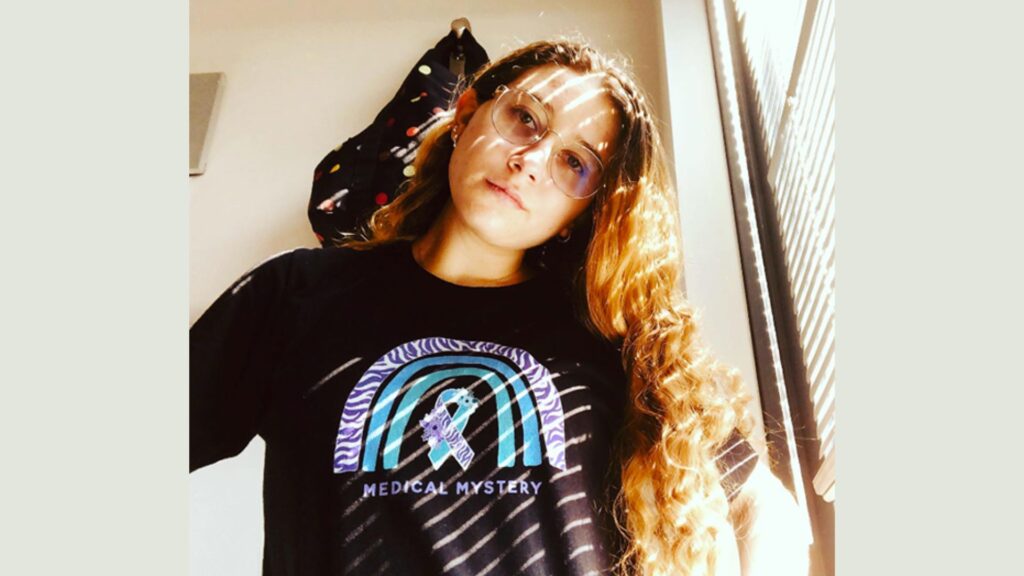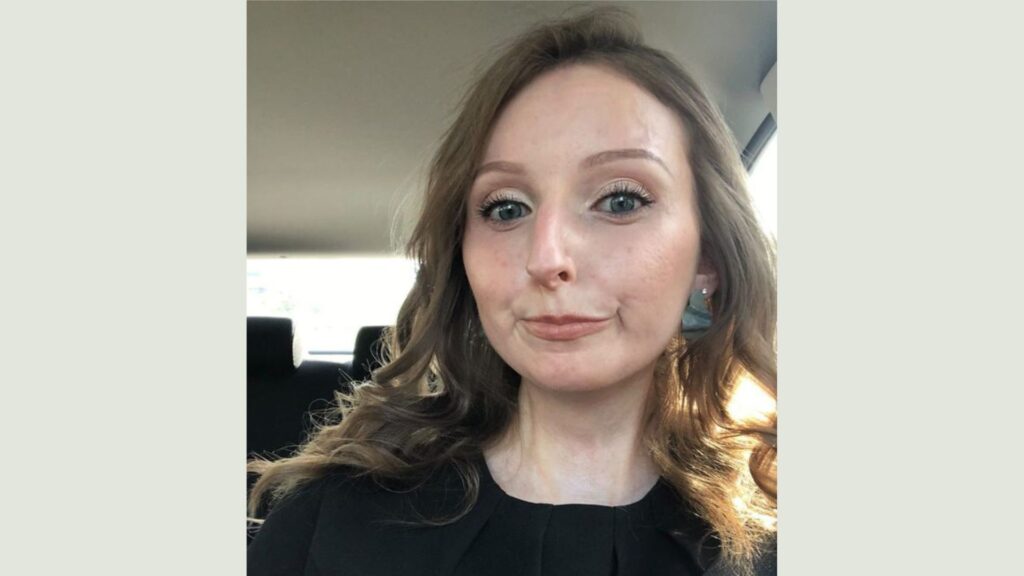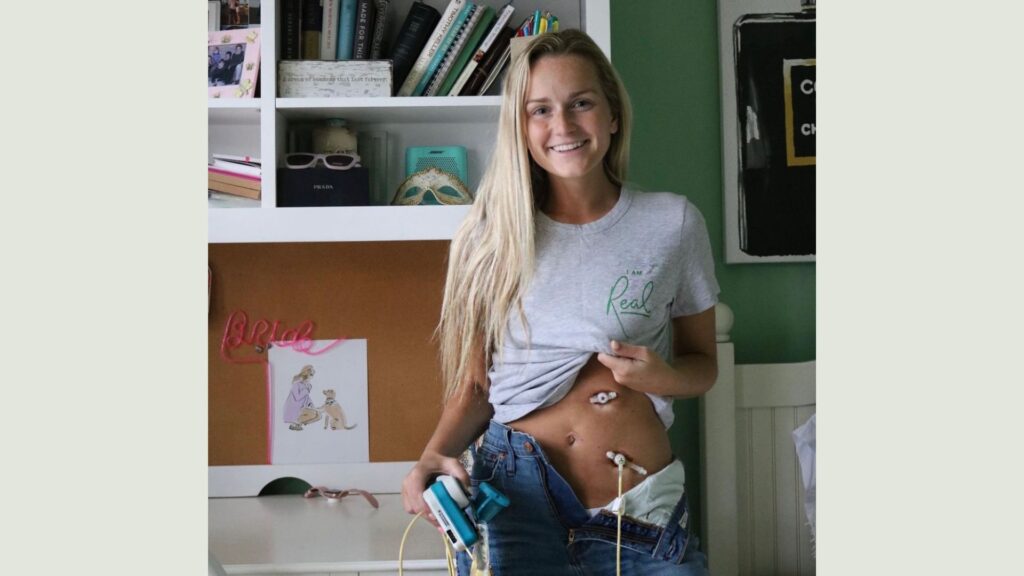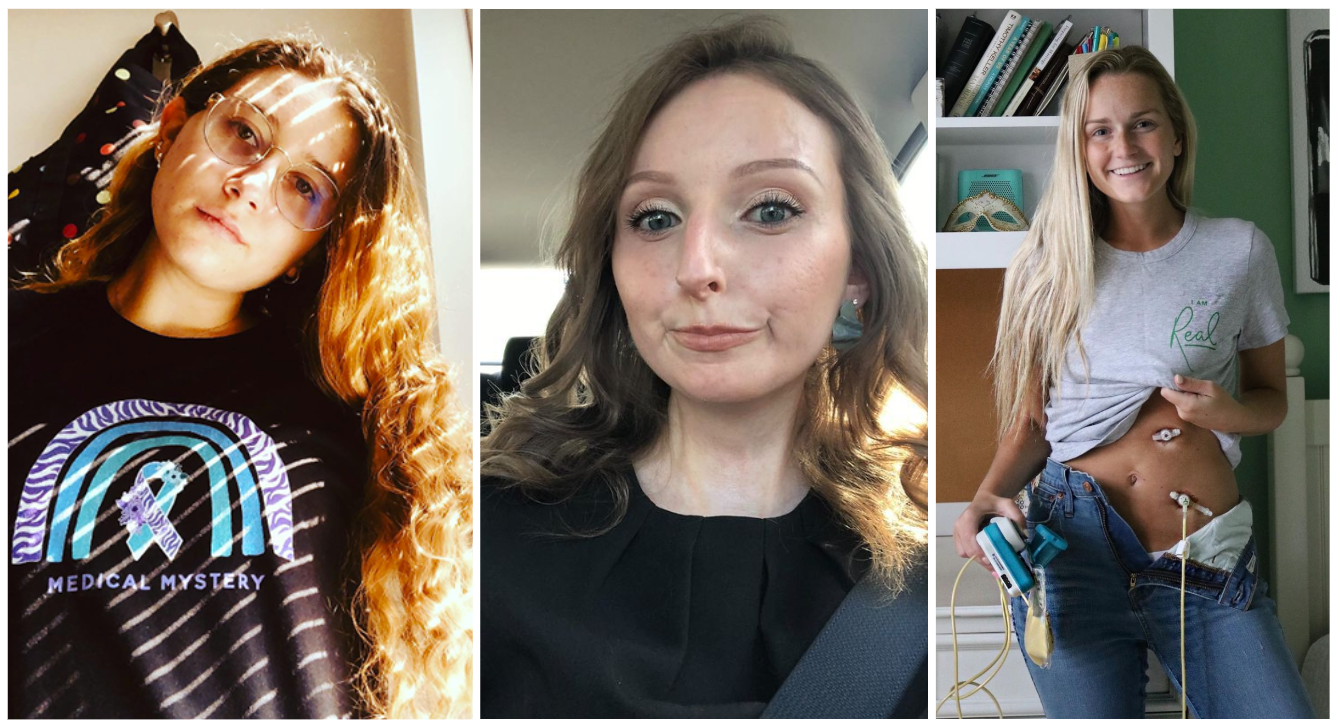Any society, or really any group of people, will carry biases. We are taught – subconsciously much of the time – to make assumptions about people based on qualities like race, gender, age, etc. This does not make us bad people, but each of us needs to examine the implicit biases we carry and work to catch ourselves before we say something hurtful or discriminate against others.
One common bias in America is weight. We ascribe moral value to people’s eating habits. We assume one person is healthier than another solely based on what they look like. We often comment on one another’s weight fluctuations without thinking about the context of the change or how our comments might impact anxiety, self-image, or even unhealthy eating patterns and eating disorders.
With chronic illnesses, this can get extra tricky. Someone may have lost weight because their illness is flaring. Telling this person “wow, you look so good!” sends a confusing (and potentially dangerous) message.
This person thinks I look better and healthier when my body is not absorbing enough nutrients.
Someone who has gained weight due to starting a treatment that has helped them to feel better may get comments from people who assume the increase in weight is due to unhealthy eating or lifestyle changes. It invalidates this person’s journey to hear that people judge them for “letting themselves go” when all they’re trying to do is feel ok.
People seem to think I am healthier when I feel terrible. I guess how I look is more important to them than how I feel.
More on body image and illness here.
Because doctors and other providers are humans within our society, they also carry these biases. More than this, doctors may have been specifically trained to view BMI as an indicator of overall health. They may suggest weight loss as a treatment before pursuing other possible causes for symptoms or assume a patient is feeling better simply because they have lost weight. Unfortunately, these beliefs and suggestions can harm patients’ health and overall well-being.
More about bias in medicine here.
We recently heard from our Friends in the Fight about another unhelpful assumption – that a patient losing weight has an eating disorder. Eating disorders are a legitimate concern (and are increasing due to stress and food insecurity during Covid) that should be ruled out when patients experience weight changes, but they are not the only answer. Believing patients when they are concerned that something else might be wrong is crucial.
We reached out to three of our friends to hear their stories:

Claire Lapat
I had some serious nutritional deficiencies and broke my hip my sophomore year of high school, which never healed right due to my nutrition deficiencies which were always just brushed off as an eating disorder because I was young, thin, and female (and a distance runner) so I fit the bill. I went to a different orthopedist my senior year of high school and he saw inflammation in the visualized colon on my pelvis MRI. He referred me to a GI who just shoved a popsicle stick up into my rectum and told me I was too young for a colonoscopy and to take some Colace. It took about 8 years to get a Crohn’s diagnosis and now it’s so hard to treat due to its severity.
What feelings did this bring up for you? Do you feel it affected your ability to get the right care?
When it first came up and was seriously talked about I was 16. I didn’t think much of it and never met with the eating disorder clinic people my doctor referred me to. I just attributed the deficiencies to running and soccer and the fact I was burning so many calories every day. Once I got sicker and was more malnourished, I got frustrated because I felt so awful and knew I didn’t have an ED. It was so frustrating each time I was brushed aside as another young woman trying to avoid gaining weight in college. I’d refuse to see any doctor again who brushed me off as having an ED. Too many times it was emergency room doctors who took the easy way out – diagnosed me with an ED and told me to follow up with a psychologist. This is definitely one of the main reasons why it took me over a decade to be diagnosed with Crohn’s disease and why my disease is currently not responding to treatments.
What do you wish others knew about this assumption?
I’d want them to know that it’s not sexist to consider an eating disorder as a possibility as EDs are very serious and are the most deadly mental health condition, but they’re not always the answer and all possibilities must be explored. As a physician, it’s their job to think critically. Only considering an eating disorder is lazy.

Alex DePaulis
I had a doctor flat-out tell me my allergies were probably fake, and moments later ask me if I’d ever had an eating disorder. I went for help BECAUSE I was unintentionally losing so much weight at an alarming rate. I was so scared I was dying. And he made me never want to get help.
What feelings did this bring up for you?
I was incredibly insulted. That doctor was an emergency room doctor that ignored me when I said I was in the process of being diagnosed with an autoimmune disease (Diffuse Systemic Scleroderma). I originally went there for breathing problems as instructed by my primary. He immediately dismissed everything I said. I let him know I was ANA positive. I had ulcers on my fingers from Raynauds (which were covered by bandaids and not something I addressed). He made me take off my bandaids and imitate the act of putting my fingers in my mouth to see if they would match bulimia as he said that ulcers appear on fingers sometimes due to acid from stomach contents. I felt dismissed, hurt, and angry. He ignored the fact that I was currently undergoing a diagnosis and went right to dismissing everything I worked hard and built up to treat. I was alone and felt like advocating for myself was useless. It made me want to give in to my depression
You mentioned that this experience made you never want to get help again — how were you able to build yourself back up and seek the right care after this?
I leaned on my friends and family for support. They knew how badly I was hurting physically and mentally. They knew the real me and helped me get the help I needed. I moved back to Massachusetts and the doctors there listened to everything I had to say and then some. I was diagnosed almost immediately and have been in treatment ever since!
What do you wish others knew about this assumption?
Illnesses are not always easily identifiable. It’s significantly easier to be empathetic and listen rather than to assume and judge. Doctors, especially when first meeting someone, should always be held to that standard as well.
The scariest feeling in the world was feeling like doctors were looking at me like I was lying. They stereotyped me based on my age, weight, and hair color and put me in a box I never belonged in. They even ignored the symptoms I tried to tell them about for 2+ months which caused further damage to my small intestine and resulted in emergency surgery. Gaslighting is such a real occurrence in the medical world, especially with young girls, and can be SO dangerous. And it messes with your head.

Jaime
Instagram: @relentlesslysassy Website: relentlesslysassy.com
I have intestinal failure, gastroparesis, and severe redundant colon. I got sick at 17 (end of 11th grade) and over the next 6 months stopped tolerating any food orally at all. I was put on a GJ tube for about 3 years, and then my GJ started flipping. Now I have a G and J tube.
I was being seen by a full diagnostic research team in Baltimore. I knew these doctors, they felt like family, and I trusted them. They told me I wasn’t approved to move away to college because I was unstable. They told me I had to be admitted for medication trials. They put me in a pain management unit. It was actually half pain management and half geriatric psych. It made sense though because I have chronic pain.
Once I was admitted they started manipulating my parents. They told them to stop visiting me, and then the doctors started treating me strangely. Before I knew it they had me in an office with my parents on speaker telling my mom I have an eating disorder. I remember my jaw literally dropping. I couldn’t believe this was actually happening.
It got worse and worse, and my parents didn’t believe me, and I was so scared that no one would ever believe me ever again. They started bolusing my feeds to increase my intake, but I had a J tube so the bolus feeds were too much and I was always vomiting. Then they said I was bulimic. It went on for months. Eventually, my jejunum ruptured from the bolus feeds and I had to have surgery to repair it. It took about 6 months for my family to process all the manipulation that had just happened and to realize what had happened.
What feelings did this bring up for you? Did it affect your ability to get the care you needed?
I ended up having to leave the team that felt like family because although they weren’t the doctors on that unit, I can’t shake the thought that they all knew what was happening to me on that psych floor and were going along with it. It definitely affected my ability to get good care at my home hospital. Plus, it was on my record for a while and I was always explaining that I never, ever had an eating disorder. I still have to defend it.
What do you wish others knew about this assumption?
The second someone has a diagnosis, there should never be a mention of eating disorders. I know that may not be the best answer because there are a lot of girls who don’t have a diagnosis yet and they certainly don’t deserve to be under investigation for an ED either. BUT, one of the most frustrating aspects of my experience was that they were somehow ignoring my factual diagnosis to make their own and prove a point. It was so frustrating.
Have you struggled with assumptions and bias in medicine? Learn how to self-advocate here.

